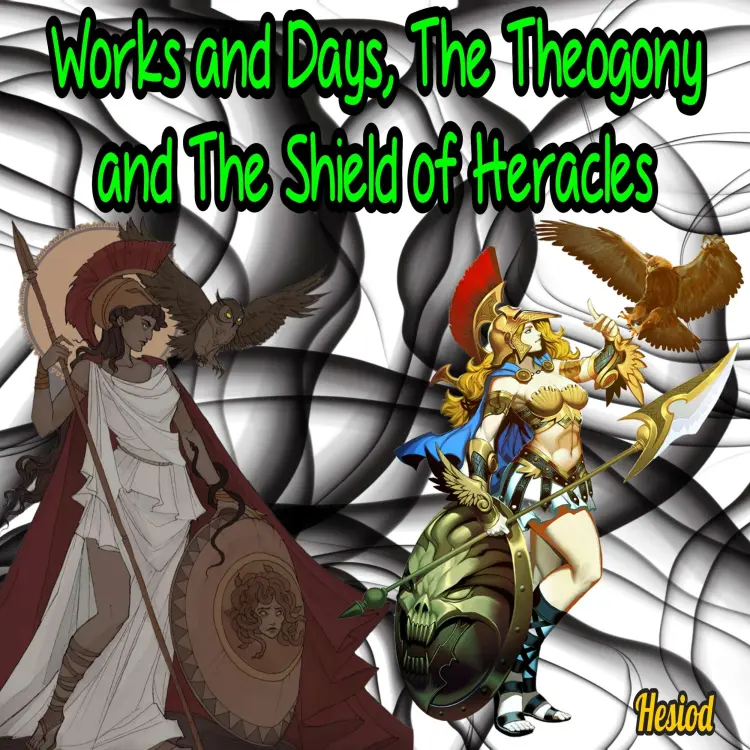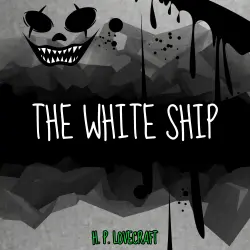
Works and Days, The Theogony and The Shield of Heracles
Hesiod
Unabridged
2 horas 28 minutos
Nota: La reproducción de los audiolibros o de las obras de audio en las respectivas plataformas, por ejemplo Spotify, puede generar gastos. Lismio no tiene ninguna influencia sobre qué audiolibros y obras de audio están disponibles en el servicio.
Algunos artículos contienen enlaces de afiliados (marcados con un asterisco *). Si hace clic en estos enlaces y compra productos, recibiremos una pequeña comisión sin coste adicional para usted. Su apoyo ayuda a mantener este sitio en funcionamiento y a seguir creando contenidos útiles. Gracias por su apoyo.
De la editorial
Audiobook Summary:
1 - Works and Days
2 - The Theogony
3 - The Shield of Heracles
Works and Days is a didactic poem written by the ancient Greek poet Hesiod around 700 BC. It is in dactylic hexameter and contains 828 lines. At its center, the Works and Days is a farmer's almanac in which Hesiod instructs his brother Perses in the agricultural arts.
Scholars have seen this work against a background of agrarian crisis in mainland Greece, which inspired a wave of colonial expeditions in search of new land. In the poem, Hesiod also offers his brother extensive moralizing advice on how he should live his life. Works and Days is perhaps best known for its two mythological aetiologies for the toil and pain that define the human condition: the story of Prometheus and Pandora, and the so-called Myth of Five Ages.
The Theogony is a poem by Hesiod (8th-7th century BC) describing the origins and genealogies of the Greek gods, composed c._730-700 BC. It is written in the Epic dialect of Ancient Greek and contains 1022 lines.
The Shield of Heracles is an archaic Greek epic poem that was attributed to Hesiod during antiquity. The subject of the poem is the expedition of Heracles and Iolaus against Cycnus, the son of Ares, who challenged Heracles to combat as Heracles was passing through Thessaly.
It has been suggested that this epic might reflect anti-Thessalian feeling after the First Sacred War (595-585 BCE): in the epic, a Thessalian hero interfering with the Phocian sanctuary is killed by a Boeotian hero (Heracles), whose mortal father Amphitryon had for allies Locrians and Phocians. This was a pastiche made to be sung at a Boeotian festival at midsummer at the hottest time of the dogstar Sirios.
To serve as an introduction, fifty-six lines have been taken from the Hesiodic Catalogue of Women. The late 3rd- and early 2nd-century BCE critic Aristophanes of Byzantium, who considered the Catalogue to be the work of Hesiod, noted the borrowing, which led him to suspect that the Shield was spurious.
1 - Works and Days
2 - The Theogony
3 - The Shield of Heracles
Works and Days is a didactic poem written by the ancient Greek poet Hesiod around 700 BC. It is in dactylic hexameter and contains 828 lines. At its center, the Works and Days is a farmer's almanac in which Hesiod instructs his brother Perses in the agricultural arts.
Scholars have seen this work against a background of agrarian crisis in mainland Greece, which inspired a wave of colonial expeditions in search of new land. In the poem, Hesiod also offers his brother extensive moralizing advice on how he should live his life. Works and Days is perhaps best known for its two mythological aetiologies for the toil and pain that define the human condition: the story of Prometheus and Pandora, and the so-called Myth of Five Ages.
The Theogony is a poem by Hesiod (8th-7th century BC) describing the origins and genealogies of the Greek gods, composed c._730-700 BC. It is written in the Epic dialect of Ancient Greek and contains 1022 lines.
The Shield of Heracles is an archaic Greek epic poem that was attributed to Hesiod during antiquity. The subject of the poem is the expedition of Heracles and Iolaus against Cycnus, the son of Ares, who challenged Heracles to combat as Heracles was passing through Thessaly.
It has been suggested that this epic might reflect anti-Thessalian feeling after the First Sacred War (595-585 BCE): in the epic, a Thessalian hero interfering with the Phocian sanctuary is killed by a Boeotian hero (Heracles), whose mortal father Amphitryon had for allies Locrians and Phocians. This was a pastiche made to be sung at a Boeotian festival at midsummer at the hottest time of the dogstar Sirios.
To serve as an introduction, fifty-six lines have been taken from the Hesiodic Catalogue of Women. The late 3rd- and early 2nd-century BCE critic Aristophanes of Byzantium, who considered the Catalogue to be the work of Hesiod, noted the borrowing, which led him to suspect that the Shield was spurious.








